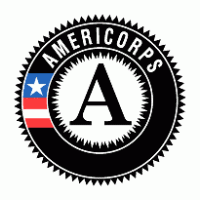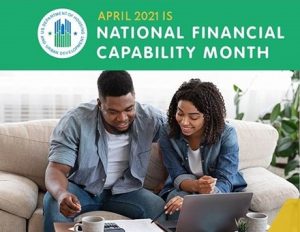Presidential Executive Order 14041
By the authority vested in me as President by the Constitution and the laws
of the United States of America, and in order to advance equity in economic and
educational opportunities for all Americans, including Black Americans, strengthen the
capacity of Historically Black Colleges and Universities (HBCUs) to provide the
highest-quality education, increase opportunities for these institutions to participate in and
benefit from Federal programs, and ensure that HBCUs can continue to be engines
of opportunity, it is hereby ordered as follows:
Section 1. Policy. HBCUs have a proud history and legacy of achievement. In the face
of discrimination against Black Americans by many institutions of higher education, HBCUs
created pathways to opportunity and educational excellence for Black students throughout our
Nation. That legacy continues. Today, more than 100 HBCUs, located in 19 States, the
District of Columbia, and the U.S. Virgin Islands, serve nearly 300,000 students
annually. HBCUs vary in size and academic focus and serve a range of diverse
students and communities in urban, rural, and suburban settings.
HBCUs play a vital role in providing educational opportunities, scholarly growth, and a
sense of community for students. HBCU graduates are barrier breaking public servants,
scientists, artists, lawyers, engineers, educators, business owners, and leaders. For
generations, HBCUs have been advancing intergenerational economic mobility for Black
families and communities, developing vital academic research, and making our country more
prosperous and equitable. HBCUs are proven means of advancement for people of all
ethnic, racial, and economic backgrounds, especially Black Americans. HBCUs produce
nearly 20 percent of all Black college graduates and 25 percent of Black
graduates who earn degrees in the disciplines of science, technology, engineering, and
math.
HBCUs’ successes have come despite many systemic barriers to accessing resources and
opportunities. For example, compared to other higher education institutions, on average
HBCUs educate a greater percentage of lower- income, Pell-grant eligible students, while
receiving less revenue from tuition and possessing much smaller endowments. Disparities in
resources and opportunities for HBCUs and their students remain, and the COVID–19
pandemic has highlighted continuing and new challenges. These challenges include
addressing the need for enhanced physical and digital infrastructure in HBCU communities
and ensuring equitable funding for HBCUs as com- pared to other institutions of
higher education. The Federal Government must promote a variety of modern
solutions for HBCUs, recognizing that HBCUs are not a monolith, and that the opportunities
and challenges relevant to HBCUs are as diverse as the institutions themselves and the
communities they serve.
It is the policy of my Administration to advance educational equity, excellence, and
economic opportunity in partnership with HBCUs, and to ensure that these vital
institutions of higher learning have the resources and support to continue to thrive for
generations to come.
Sec. 2. White House Initiative on Advancing Educational Equity, Excellence, and Economic
Opportunity through Historically Black Colleges and Universities.
(a) In furtherance of the policy set out in section 1 of this order, there is established in
the Department of Education (Department), the White House Initiative on Advancing Educational
Equity, Excellence, and Economic Opportunity through Historically Black Colleges and
Universities (Initiative), led by an Executive Director designated by the
President and appointed consistent with applicable law. The Executive Director
shall manage the day-to-day operations of the Initiative, in consultation with
the Assistant to the President and Director of the White House Office of Public Engagement as
appropriate, and coordinate with senior officials across the Executive Office of
the President, who shall lend their expertise and advice to the Initiative.
(b) The Initiative, in coordination with senior officials across the Executive Office of
the President, shall provide advice to the President on advancing equity, excellence,
and opportunity at HBCUs and for the communities they principally serve by
coordinating a Government-wide policymaking effort to eliminate barriers HBCUs face
in providing the highest-quality education to a growing number of students. The
Initiative’s recommendations shall include advice on advancing policies, programs, and
initiatives that further the policy set out in section 1 of this order.
(i) To support implementation of this Government-wide approach to breaking down
systemic barriers for HBCU participation in Federal Government programs, the Director of
the Office of Management and Budget and the Assistant to the President for
Domestic Policy shall coordinate closely with the Secretary of Education (Secretary),
the Assistant to the President and Director of the White House Office of Public Engagement, the
Executive Director, and the Chair of the President’s Board of Advisors on HBCUs (as
established in section 3 of this order) to ensure that the needs and voices of HBCUs,
their faculty, staff, students, alumni, and the communities they principally serve are
considered in the efforts of my Administration to advance educational equity, excellence, and
opportunity.
(ii) The Initiative shall also perform the following specific functions:
(A) supporting implementation of the HBCU Propelling Agency Relation- ships Towards a New Era
of Results for Students Act (Public Law 116– 270) (PARTNERS Act);
(B) working closely with the Executive Office of the President on key Administration
priorities related to advancing educational equity, excellence, and economic
opportunity through HBCUs, in partnership with HBCU leaders, representatives, students,
and alumni;
(C) working to break down barriers and expand pathways for HBCUs to access Federal
funding and programs, particularly in areas of research and development, innovation, and
financial and other support to students;
(D) strengthening the capacity of HBCUs to participate in Federal pro- grams, access
Federal resources, including grants and procurement opportunities, and partner with Federal
agencies;
(E) advancing and coordinating efforts to ensure that HBCUs can respond to and recover from
the COVID–19 pandemic and thoroughly support students’ holistic recovery, from
academic engagement to social and emotional wellbeing;
(F) developing new and expanding pre-existing national networks of individuals,
organizations, and communities to share and implement administrative and programmatic
best practices related to advancing educational equity, excellence, and opportunity at
HBCUs;
(G) fostering sustainable public-private and philanthropic partnerships as well as
private-sector initiatives to promote centers of academic research and program excellence at HBCUs;
(H) strengthening capacity to improve the availability, dissemination, and quality
of information about HBCUs and HBCU students for the American public;
(I) partnering with private entities, elementary and secondary education providers, and
other stakeholders to build a pipeline for students that may be interested in
attending HBCUs, facilitate HBCU modernization, address college affordability, and
promote degree attainment;
(J) addressing efforts to promote student success and retention, including college affordability,
degree attainment, campus modernization and infra- structure improvements, and the
development of a student recognition program for high-achieving HBCU students;
(K) encouraging the development of highly qualified, diverse, culturally responsive
educators and administrators reflective of a variety of communities and backgrounds in
order to ensure that students have access to educators and administrators who
celebrate, cultivate, and comprehend the lived experiences of HBCU students and effectively
meet their learning, social, and emotional needs;
(L) establishing clear plans to strengthen Federal recruitment activities at HBCUs to
build accessible and equitable pathways into Federal service and talent programs;
(M) meeting regularly with HBCU students, leaders, and representatives to address matters
related to the Initiative’s mission and functions; and
(N) hosting the National HBCU Week Conference, for HBCU executive leaders, faculty,
students, alumni, supporters, and other stakeholders to share information, innovative
educational tools and resources, student success models, and ideas for Federal engagement.
(c) The head of each ‘‘applicable agency,’’ as defined in section 3(1) of
the PARTNERS Act, shall submit to the Secretary, the Executive Director, the Committee
on Health, Education, Labor, and Pensions of the Senate, the Committee on
Education and Labor of the House of Representatives, and the President’s Board of
Advisors on HBCUs (as established in section 3 of this order) an Agency Plan, not later than February 1 of each year, describing
efforts to strengthen the capacity of HBCUs to participate or be eligible to
participate in the programs and initiatives under the jurisdiction of such applicable agency.
The Agency Plans shall meet the requirements established in section 4(d) of the PARTNERS Act.
(i) In addition, the Agency Plan shall specifically address any changes to
agency policies and practices that the agency deems necessary or appropriate to
ensure that barriers to participation are addressed and removed. Each Agency Plan
shall include details on grant and contract funding provided to HBCUs and, where the
agency deems necessary or appropriate, describe plans to address disparities in furtherance
of the objectives of this order.
(ii) The Executive Director shall monitor and evaluate each agency’s progress
towards the goals established in its Agency Plan and shall coordinate with each
agency to ensure that its Agency Plan includes measurable and action-oriented goals.
(d) There is established an Interagency Working Group, which shall be chaired by the
Executive Director and composed of liaisons and representatives designated by the
heads of each applicable agency as defined in the PARTNERS Act to help advance and
coordinate the work required by this order. Additional members of the Interagency
Working Group shall include senior officials from the Office of the Vice
President, the White House Domestic Policy Council, the White House Gender Policy
Council, the Office of Management and Budget, the White House Office of Science and
Technology Policy, the White House Office of Public Engagement, and representatives
of other components of the Executive Office of the President, as the Executive
Director, in consultation with the Secretary and the Assistant to the President and
Director of the White House Office of Public Engagement, considers appropriate.
The Interagency Working Group shall collaborate regarding resources and opportunities available
across the Federal Government to increase educational equity and opportunities for HBCUs.
The Executive Director may establish subgroups of the Interagency Working Group.
(e) The Department shall provide funding and administrative support for the Initiative
and the Interagency Working Group, to the extent permitted by law and within existing
appropriations. To the extent permitted by law, including the Economy Act (31 U.S.C.
1535), and subject to the availability of appropriations, other agencies and offices
represented on the Interagency Working Group may detail personnel to the Initiative, to assist
the Department in meeting the objectives of this order.
(f) To advance shared priorities and policies that advance equity and economic
opportunity for underserved communities, the Initiative shall collaborate and coordinate
with other White House Initiatives related to equity and economic opportunity.
(g) On an annual basis, the Executive Director shall report to the President through
the Secretary, with the support and consultation of the Assistant to the President and
Director of the White House Office of Public Engagement as appropriate, on the Initiative’s
progress in carrying out its mission and function under this order.
Sec. 3. President’s Board of Advisors on Historically Black Colleges and Universities.
(a) There is established in the Department the President’s Board of Advisors on
Historically Black Colleges and Universities (Board). The Board shall fulfill the
mission and functions established in section 5(c) of the PARTNERS Act. The
Board shall include sitting HBCU presidents as well as leaders from a variety of sectors,
including education, philanthropy, business, finance, entrepreneurship, innovation, science
and technology, and private foundations.
(b) The President shall designate one member of the Board to serve as its Chair,
and may designate another member of the Board to serve as Vice Chair. The
Department shall provide funding and administrative support for the Board to the extent
permitted by law and within existing appropriations.
(c) The Board shall be composed of not more than 21 members appointed by the
President. The Secretary of Education and Executive Director of the Initiative or
their designees shall serve as ex officio members.
(d) Insofar as the Federal Advisory Committee Act, as amended (5 U.S.C. App.), may
apply to the Board, any functions of the President under that Act, except that of
reporting to the Congress, shall be performed by the Chair, in accordance with
guidelines issued by the Administrator of General Services.
(e) Members of the Board shall serve without compensation, but may receive
travel expenses, including per diem in lieu of subsistence, as authorized by law for
persons serving intermittently in the Government service (5 U.S.C. 5701–5707).
Sec. 4. Administrative Provisions. (a) This order supersedes Executive Order 13779 of
February 28, 2017 (White House Initiative To Promote Excellence and Innovation at
Historically Black Colleges and Universities), which is hereby revoked. To the
extent that there are other Executive Orders that may conflict with or overlap
with the provisions in this order, the provisions in this order supersede those
prior Executive Orders on these subjects.
(b) As used in this order, the terms ‘‘Historically Black Colleges and
Universities’’ and ‘‘HBCUs’’ shall mean those institutions listed in 34 C.F.R. 608.2.
(c) The heads of executive departments and agencies shall assist and provide
information to the Initiative and Board established in this order, consistent with
applicable law, as may be necessary to carry out the functions of the Initiative and the Board.
(d) Each executive department and agency shall bear its own expenses of participating in
the Initiative established in this order.
Sec. 5. General Provisions. (a) Nothing in this order shall be construed to
impair or otherwise affect:
(i) the authority granted by law to an executive department or agency, or the head
thereof; or
(ii) the functions of the Director of the Office of Management and Budget relating to
budgetary, administrative, or legislative proposals.
(b) This order shall be implemented consistent with applicable law and subject to the
availability of appropriations.
(c) This order is not intended to, and does not, create any right or benefit,
substantive or procedural, enforceable at law or in equity by any party
against the United States, its departments, agencies, or entities, its officers,
employees, or agents, or any other person.
THE WHITE HOUSE,
September 3, 2021.
[FR Doc. 2021–19579
Filed 9–8–21; 8:45 am] Billing code 3295–F1–P







